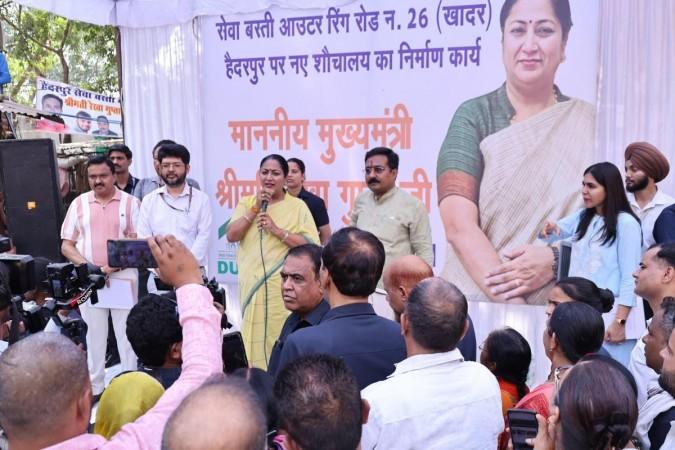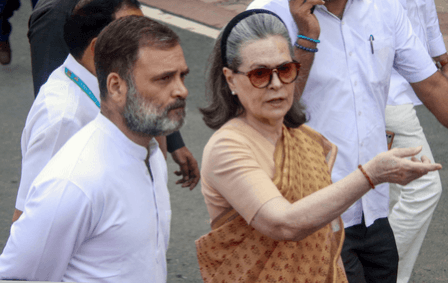
Delhi Chief Minister Rekha Gupta recently criticized the Aam Aadmi Party (AAP) and the Congress for allegedly misleading slum dwellers for years without providing essential services. During the inauguration of a 24-seater Jan Seva Camp (JSC) at JJ Cluster, Nehru Camp, Haiderpur, Gupta emphasized the government's duty to improve public services. She highlighted her administration's commitment to this responsibility, contrasting it with the previous governments led by Arvind Kejriwal and Sheila Dikshit, which she claimed failed to allocate funds for slum development.
Gupta announced that her government is investing Rs 700 crore in development projects aimed at enhancing the living conditions of slum dwellers. Addressing allegations that AAP leaders were misleading residents by claiming that the BJP-led government would demolish their homes, Gupta clarified that any demolition would only occur after providing alternative housing. She underscored the importance of adhering to court orders, stating, "If the court orders anything, it is in the best interest of the people."

The Chief Minister cited the example of the Madrasi colony near the Barapullah nullah, which has been ordered for removal multiple times to facilitate drain cleaning and prevent potential flooding in Delhi, similar to the events of 2023. Gupta also addressed safety concerns in the Railways' colony, where homes have been constructed perilously close to train tracks. She questioned who would be held accountable in the event of an accident, naming AAP leaders Atishi, Arvind Kejriwal, and Saurabh Bhardwaj.

Challenges in Slum Rehabilitation
Expressing frustration over the behavior of some slum residents, Gupta mentioned that Prime Minister Narendra Modi had provided 1,675 flats at the Wazirpur slum, but some dwellers were reluctant to relocate. Condemning the lack of facilities in slum areas, Gupta highlighted the absence of essential infrastructure such as drains, playgrounds for children, and sanitation facilities for women. She pledged to address these issues by constructing five to six 'snanghars' (bathing houses) and improving drainage systems to alleviate the residents' hardships.
The situation in Delhi's slums has been a contentious issue for years, with various political parties and governments grappling with the challenges of urban poverty and housing. The recent demolition of the Madrasi Camp in Jangpura, which left many residents homeless, has further fueled the debate. Residents like Peramma, who was forced to hurriedly pack her belongings as demolition machinery arrived, expressed their frustration and sense of betrayal. Despite assurances from local police that they would have more time to relocate, the demolition proceeded, leaving many without shelter.
The Delhi High Court had mandated the clearance of the area, emphasizing the necessity of rehabilitating the displaced residents. However, only a portion of the affected families were deemed eligible for relocation to Narela, a distant area lacking basic amenities like electricity and water. This has raised concerns about the adequacy and fairness of the rehabilitation process, with residents like Sivagami questioning how they would manage the long commute to their workplaces in the city.

















